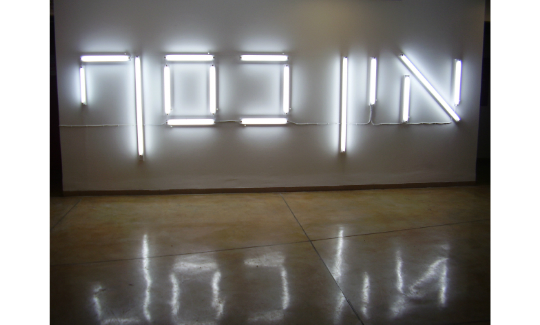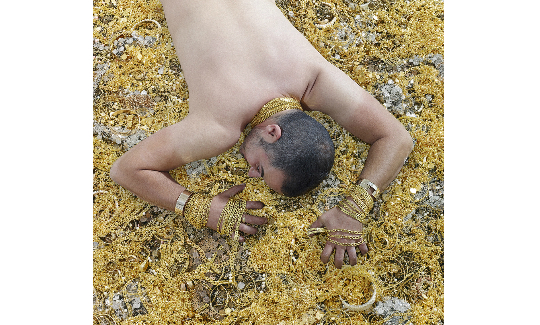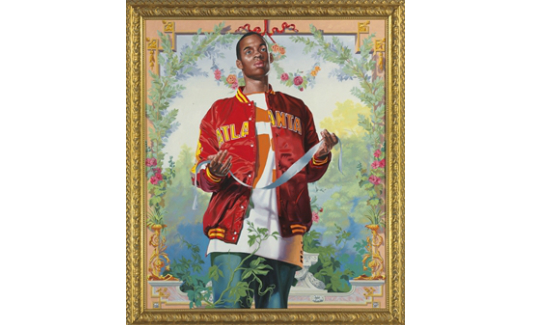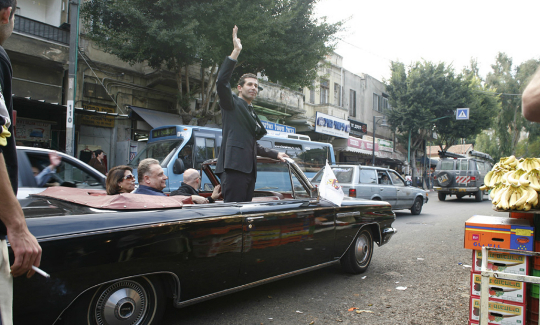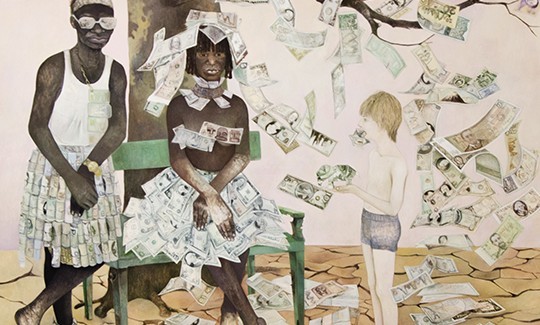Money with a Capital "M"
Saturday, 04.08.18, 20:00
Sunday, 17.02.19
:
Svetlana Reingold
More info:
04-6030800Karl Marx, writing about capital, emphasized that money can buy anything, and is therefore considered all-powerful. In his words, "money is the procurer between man’s need and the object, between his life and his means of life. But that which mediates my life for me, also mediates the existence of other people for me".
Writing in a nearly religious tone, Marx defines money as an omnipotent object, whose potential power applies to all the other objects in the world, lending it the status of a super-mediator. Money's symbolic power is also implied in the concept of "spectacular consumption," coined by economist Thorstein Veblen. He argued that such consumption is not meant to be used or enjoyed directly; its function is to signal superfluity and excess. Money becomes the paramount measure of worth.
The symbolic power of money emerges more intensely in late capitalism, which is characterized by the global movement of capital, desire, and images that change hands and acquire new owners. This symbolic power is associated with feelings of libidinal might – above and beyond the specific role that money fulfills in its owners' lives. The tendency of contemporary culture to flee the capitalism of goods in favor of the capitalism of ideas – knowledge, images, reputation – entails a rise in money's status as a formal link between life's different spheres. Money, as an agreed symbolic procedure for exchanging things and merchandise, thus becomes a general signifier of desire.
This process illuminates the identity crisis afflicting Israeli society as well in recent decades. Israel has seen growing polarization between the culture of abundance, with its hedonism, individualism, and universalism, and tribalist-nationalist tendencies, which view this culture with contempt and emphasize alternative values: ideological adherence, a strong Jewish identity, and so forth.
The current exhibition seeks to articulate one expression of wealth that characterizes life in Israel – namely, conspicuous, demonstrative wealth, which takes the form of a hollow spectacle. This kind of unabashed wealth feeds on the fictions of "lifestyle" and the explosion of branded images flooding Israeli society. The works included in it represent consumer culture mostly as a world of representations, images, and illusions – a flat world of seductive simulacra; a world lacking authenticity, one that is overbearing, glamorous, and fundamentally empty.
The works in the show reflect a conceptual connection between glitter and seduction, superficiality and fragility, while also representing the "want of matter" in Israeli art. The contrasts depicted in the works create an imaginary world, citing multileveled cultural sources: the bourgeoisie and the aristocracy, Christian motifs and the golden era of Western culture. Familiar classical motifs are presented as victims of Western consumer culture, which turns every cultural element – even sacred icons – into an object manufactured on a uniform production line. The different means of representation reflect a critical engagement with the world of obsessive consumption that has swept up Israeli society in general, and the field of art in particular.
Participating artists: Valery Bolotin, Barry Frydlender, Lahav Halevy, Jonathan Hirschfeld, Shahar Marcus, Gil Mualem-Doron, Belu-Simion Fainaru, Cindy Sherman, Inga Pries Kantor, Maayan and Inbal Strauss, Wolfgang Tillmans, Kehinde Wiley

